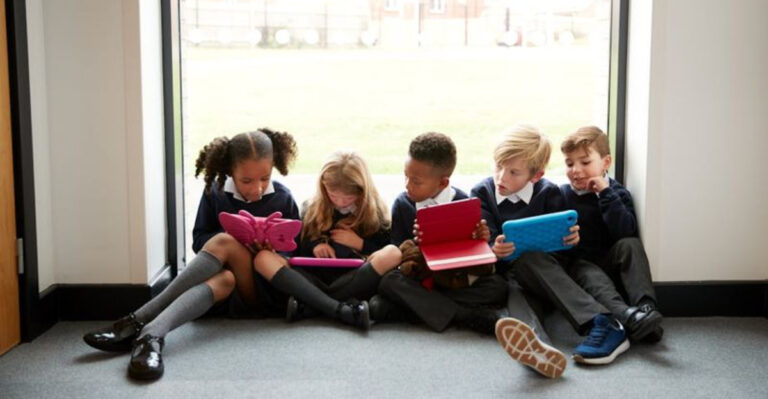Raising A Connected Kid: 17 Smart Tips For Today’s Digital Parents
Nobody tells you how weird it is to worry about your kid’s digital life as much as their real one. You know the feeling—the knot in your stomach when their screen lights up at the dinner table, the guilt for letting YouTube babysit so you could shower, the panic of not knowing what half those apps even do.
You’re not failing. You’re just raising a kid in a world where the rules keep changing, and the stakes feel impossibly high. Let’s skip the lectures. This is about real connection, not control.
These 17 tips aren’t about getting it perfect—they’re about finding your footing, even when the ground keeps moving. Consider this your late-night, honest phone call—truths, not platitudes. One mom to another.
1. Set (and Explain) Real Digital Boundaries
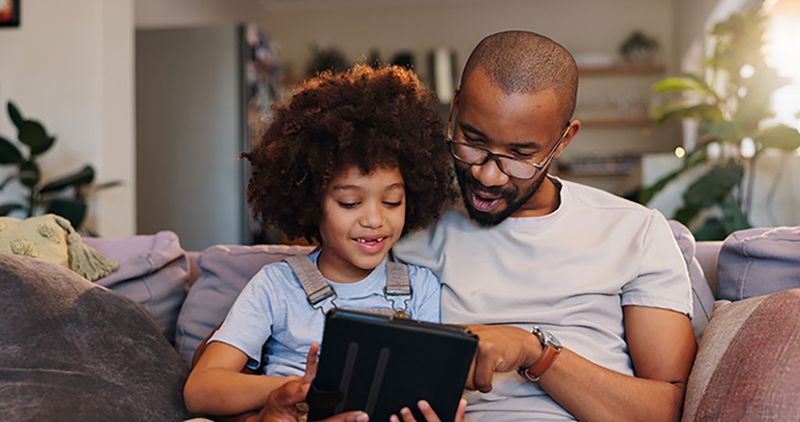
Ever tried saying “no screens at dinner” and been met with that world-ending stare? Yeah, me too. Boundaries sound easy until you actually enforce them with a kid who thinks TikTok is oxygen.
The trick isn’t just making the rule. It’s explaining the why in a way that makes sense to them—so it’s not just “because I said so.” My daughter didn’t buy into limits until I explained that our brains need breaks just like our bodies.
She needed to hear, from me, that her feelings when she logged off mattered. Not every limit will land. But the conversation—where you treat their questions with respect—will. That’s what sticks, long after the timer beeps.
2. Keep the Conversation Open (Even When You’re Tired)
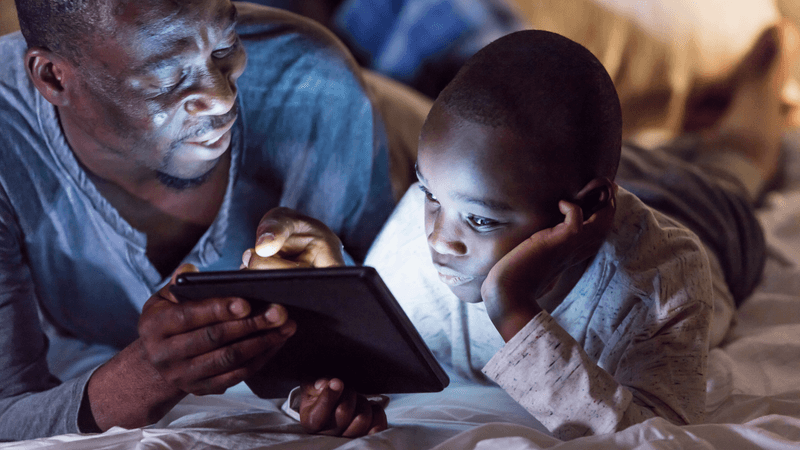
Some nights, you want to put your phone under your pillow and just check out. Unfortunately, those are the nights your kid comes in with a weird story about a Snapchat message that made them uncomfortable.
It’s tempting to brush it off or say, “Just ignore it.” But when you actually pause and listen, you give them the courage to keep coming to you, no matter how awkward or late it gets.
I once learned more about my son’s friends in a ten-minute, half-awake chat than I had all week. Sometimes being available is less about energy, more about willingness to hear them out. Even when you’re running on empty, that open door matters.
3. Model What You Preach (Even When You Screw Up)

Here’s the cringe: I caught myself lecturing about screen time while doom-scrolling Instagram. Instant guilt. Our kids notice every contradiction, especially the ones we hope they don’t see.
So, I started narrating my choices out loud—“I’m putting my phone away because you deserve my attention.” Not always perfect, but honest.
When you mess up (and you will), own it. Say it out loud. The apology and the effort land way harder than pretending you’re flawless. Our kids remember how we handle mistakes more than the mistake itself.
4. Make Time for Offline Rituals

My daughter remembers the Saturday we played board games and baked cookies—she doesn’t remember what show we binged that night. Screens are easy, but rituals stick.
Pick one thing—pancake Sundays, walk after dinner, silly bedtime stories—and guard it. You don’t need a Pinterest-perfect plan, just something yours, something that says “this is us.”
When you make space for offline memories, it reminds your kid there’s joy outside the scroll. Even when they roll their eyes or groan, they’ll remember the flour fights long after the next viral video fades.
5. Teach Them to Question Everything Online
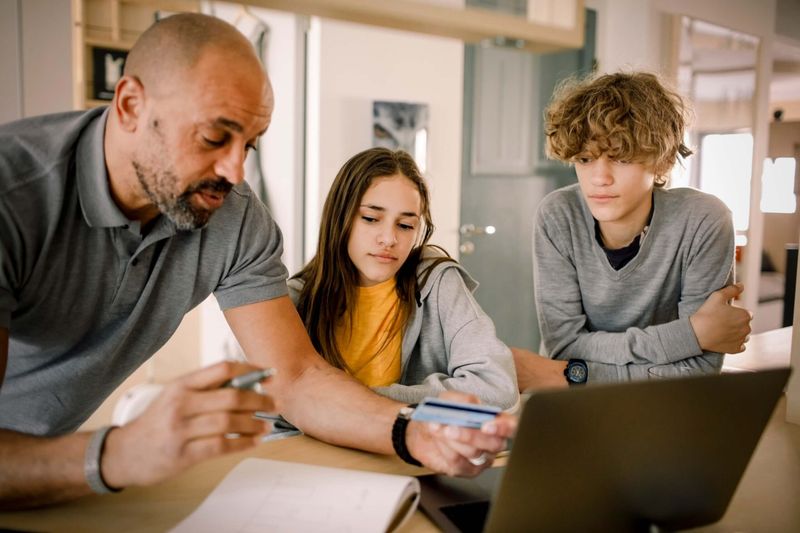
Did you know not everything on the internet is true? (Sarcasm intended.) Kids these days can Google anything—but knowing what to trust is a whole other skill set.
I told my daughter, “If something online feels off, ask yourself: who made this, and why?” We did little detective missions together, finding fake news and silly scams.
It’s actually kind of fun, treating the web like a giant puzzle. Critical thinking isn’t just a school thing; it’s survival. If they can question what they see, they’re already ahead of half the adults I know.
6. Let Them Teach You Something Techy

Confession: My daughter still has to explain half of what happens on her phone. And every time she does, she glows a little. Letting your kid teach you gives them a sense of power—they’re the expert for once.
Ask them how a game works, or why everyone’s obsessed with some new filter. Even if you don’t care, pretend you do. It’s their world, and they want you to peek inside.
You’ll get to laugh at yourself, and they’ll see you’re willing to learn. Sometimes, that’s the best connection you’ll make all week. Bonus: you might actually figure out what “finsta” means.
7. Don’t Just Warn—Share Your Own Online Fails
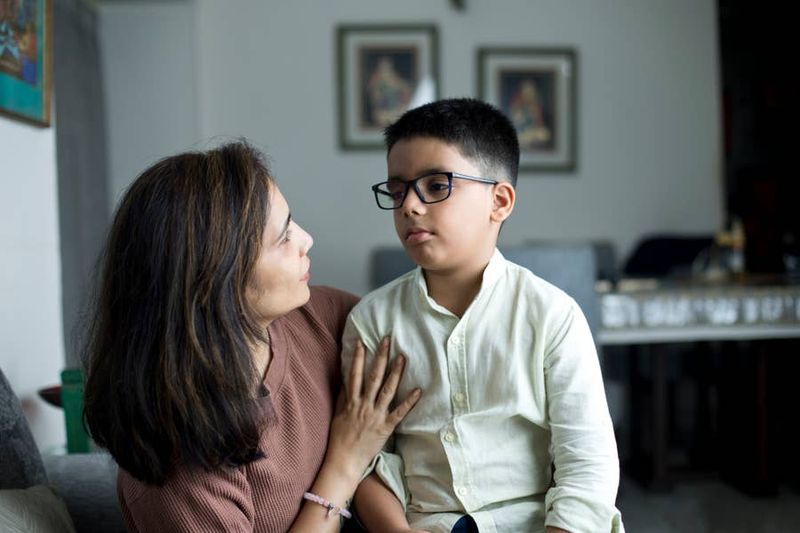
Remember when you fell for that obvious scam email? Or posted something embarrassing and immediately regretted it? Tell your kid about it.
It’s easy to go full lecture mode, warning them about every possible danger. But real stories stick. When I shared my own online mistakes, my son listened—actually listened, not just nodded.
He teased me for weeks, but now he double checks before clicking weird links. Vulnerability is underrated in parenting. At times, the best lessons are the ones where you’re the punchline.
8. Check In On Their Digital Friendships
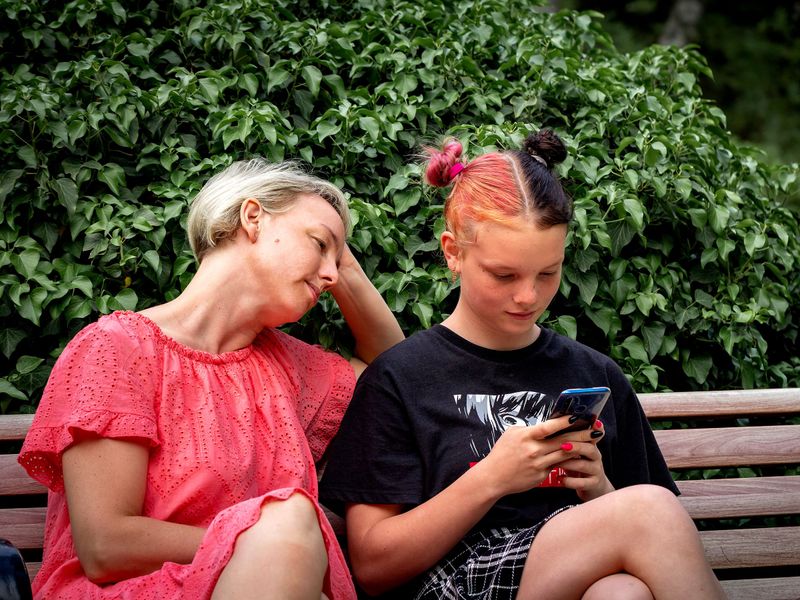
It’s not just about who your kid hangs out with at school anymore. Their closest friendships might be in some group chat you’ve never heard of.
I started asking, “Anyone new in your gaming group? How are things with the old crew?” Not in a nosy way—more like I’d ask about any friend.
We talked through some messy online drama, and he told me things I never would’ve guessed. Digital friendships are real friendships. Treat them that way, and your kid will open up more than you expect.
9. Set Sleep Rules (And Stick With Them)

No one tells you how hard it is to keep screens out of the bedroom. But when I started making phones sleep somewhere else, everyone actually slept better—including me.
The first week was rough. Eye rolls, grumbling, even a little sneaking around. But after a while, my daughter stopped waking up cranky and started reading again.
Consistency is everything. Set a time, stick to it, and make it a family thing. Trust me, you’ll all thank yourself in the morning.
10. Talk Privacy Like It’s a Big Deal (Because It Is)
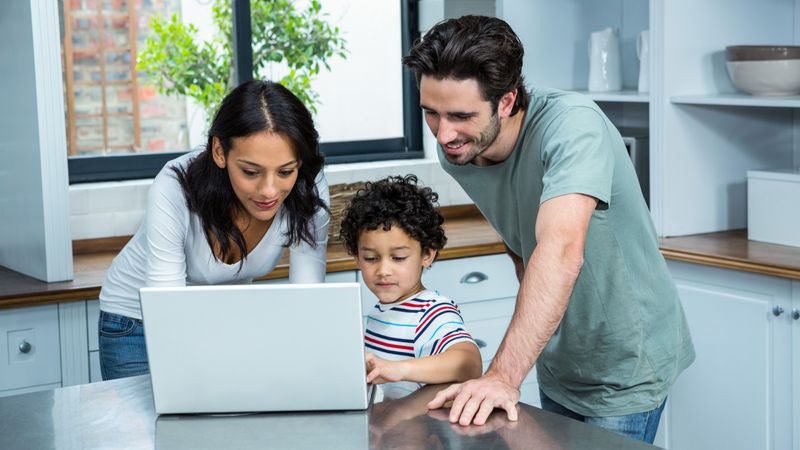
When my son wanted his own email, it hit me—he had no clue what “privacy” really meant. Most kids don’t. We sat down and went through every setting together, making it a big deal because it is.
I explained how a simple selfie could wind up in weird places. He was shocked, but it stuck with him.
The internet never forgets, and neither should our kids. If you have one privacy talk, have five. It’s worth it every time.
11. Use Parental Controls (But Don’t Rely on Them Alone)

Setting up controls felt a little like locking the front door. Necessary, but not enough by itself. I told my son, “This helps, but I still trust you to make good choices.”
He needed to know it wasn’t about spying—it was a layer of safety, like a seatbelt. Parental controls won’t raise your kid for you, but they set a baseline.
Check the settings together, update them as your kid grows, and never treat it like a secret. The real power is trust, not tech.
12. Normalize Digital Detox Days
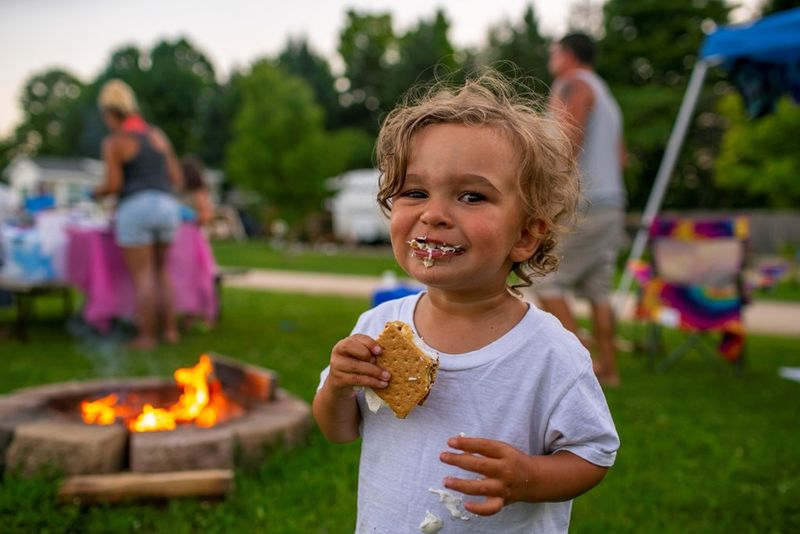
We did our first “no screens Saturday” as a joke. By the afternoon, everyone was grumpy—and then, all of a sudden, they weren’t.
We played soccer, made up stories, and ate way too many snacks. The world didn’t end, and nobody missed their phones as much as they thought.
Now, digital detox is a tradition—not a punishment, just a reset. It reminds us we can still have fun, even when the WiFi is off. From time to time, you have to unplug to really reconnect.
13. Talk About What’s Real (And What’s Not) on Social Media

Ever noticed how a 10-second scroll on Instagram can make your kid question everything about themselves? Been there. Social media isn’t the enemy, but the line between real and fake gets thinner every day.
We started playing “guess what’s filtered”—turns out, my daughter is better at spotting edits than I am. We talk about what’s real, what’s staged, and why it matters.
Helping kids spot the difference gives them armor. They learn that nobody’s life is as perfect as it looks online. That lesson is worth repeating.
14. Celebrate Their Digital Wins

When my kid built her first little website, she acted cool—but I saw the pride in her eyes. Celebrate the good stuff your kids do online, not just the trouble they avoid.
Digital life isn’t just danger. It’s art, coding, connection, new ideas. I learned to cheer for every creative project, meme, or epic Minecraft build.
At times, a high five means more than a hundred warnings. Let them know you see their effort, not just their mistakes.
15. Stay Curious About Their Apps (Even the Weird Ones)
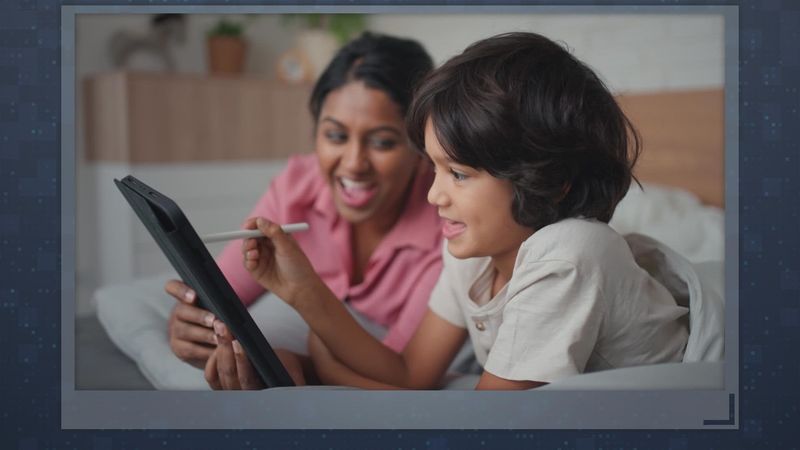
One day, my son showed me an app where people pretend to cook imaginary pancakes. I almost laughed, but then I realized: this is his world.
Instead of rolling my eyes, I asked him to show me how it worked. He got so into it, and I finally understood why it was fun.
Curiosity beats criticism every time. Even if you don’t get it, showing interest brings you closer. And just like that, you’ll be surprised at what you find.
16. Keep Your Own Digital Stuff in Check
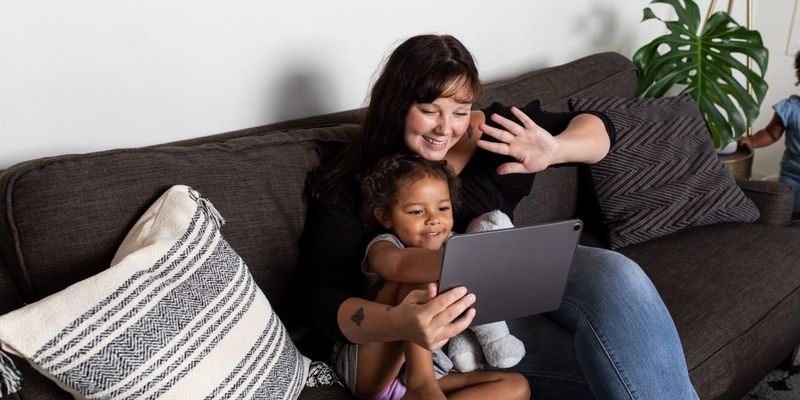
I used to check my email every time my phone buzzed—habit, not need. My son started noticing, “You’re always on that thing.” Ouch. I promised to match my screen time to his.
We made it a challenge. If I picked up my phone, he called me out. Changing my habits wasn’t easy, but it made the rules feel fair.
Kids know when we bend the rules. Walking your talk isn’t just for them—it’s for you, too. Presence is contagious.
17. Remind Them (And Yourself) That No One’s Perfect

After my daughter made a huge online mistake, she thought her world was ending. We sat on her bed and talked it through—tears, apologies, the whole thing.
I told her, “There’s nothing you could do online that would make me love you less.” She needed to hear that mistakes are part of learning, not the end of the story.
We both messed up, owned it, and moved on. Digital parenting isn’t about being perfect. It’s about showing up, even when it’s hard.


